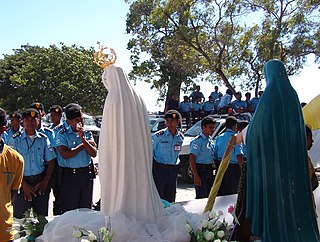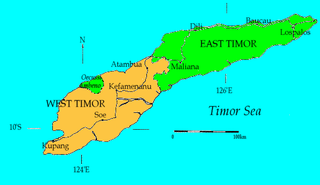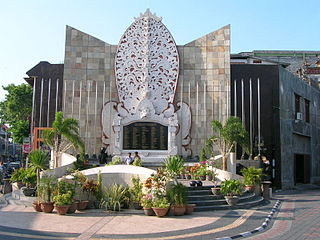United Nations Security Council Resolution 30, adopted on August 25, 1947, upon having learning of the desire of both the Netherlands and Indonesian Nationalists in the Indonesian National Revolution to comply with United Nations Security Council Resolution 27, the Council requested that each of its members recall a diplomatic officer from Batavia to instruct them on the situation.
United Nations Security Council Resolution 31, adopted on August 25, 1947, offered to assist in the peaceful resolution of the Indonesian National Revolution by setting up a committee of three members; one to be chosen by the Netherlands, one to be chosen by Indonesia and the third to be chosen by the other two members of the committee.
United Nations Security Council Resolution 32, adopted on August 26, 1947, condemned the continuing violence in the Indonesian National Revolution and asked both sides to own up to their commitments under United Nations Security Council Resolution 30.
United Nations Security Council Resolution 36, adopted on November 1, 1947, noted that according to a report by the Consular Commission, no attempt has been made by either side in the Indonesian National Revolution to come to compliance with United Nations Security Council Resolution 27. The resolution called upon the parties concerned to take action to bring the resolution into effect.
United Nations Security Council Resolution 41, adopted on February 28, 1948, commended both parties in the Indonesian National Revolution for the recent signing of a truce and attempts to comply with United Nations Security Council Resolution 27. Repeated the offer of mediation made in United Nations Security Council Resolution 31 and requested the Committee of Good Offices keep them informed as to the progress of political settlement in the Indonesia.
United Nations Security Council Resolution 63, adopted on December 24, 1948, in response to a report by the Committee of Good Offices the Council called upon the parties to cease hostilities and to release the President of the Republic of Indonesia and other political prisoners arrested since December 18, 1948.
United Nations Security Council Resolution 64, adopted on December 28, 1948, noted that the Netherlands had not complied with the demands to release the President of the Republic of Indonesia and other political prisoners as issued in United Nations Security Council Resolution 63. The Resolution demanded that the Netherlands set free these prisoners forthwith and report to the Council within 24 hours.
United Nations Security Council Resolution 67, adopted on January 28, 1949, satisfied that both parties in the Indonesian Conflict continued to adhere to the principles of the Renville Agreement, the Council called upon the Netherlands to immediately discontinue all military operations and upon the Indonesian Republic to order its armed adherents to cease guerrilla warfare and for both parties to cooperate in the restoration of peace and the maintenance of law and order throughout the area. The Council further called upon the Netherlands to release all political prisoners arrested since December 17, 1948 and to facilitate the immediate return of officials of the Government of the Republic of Indonesia to Jogjakarta and afford to them such facilities as may reasonably be required by that Government for its effective functioning in that area.
United Nations Security Council Resolution 75, adopted on September 27, 1949, after receiving a General Assembly resolution authorizing the Council to make decisions on the matter the Council decided to retroactively reimburse the Member States that were participating in the United Nations Commission for Indonesia and the United Nations Commission for India and Pakistan for their traveling and substance expenses.

United Nations Security Council resolution 1236, adopted unanimously on 7 May 1999, after recalling previous resolutions on East Timor including 384 (1975) and 389 (1976), the Council welcomed an agreement between Indonesia and Portugal on the future of East Timor and a proposed United Nations presence to assist with the East Timor Special Autonomy Referendum scheduled for August 1999.
United Nations Security Council resolution 1246, adopted unanimously on 11 June 1999, after recalling previous resolutions on East Timor, particularly Resolution 1236 (1999), the Council established the United Nations Mission in East Timor (UNAMET) to organise and conduct the East Timor Special Autonomy Referendum on the future status of East Timor, scheduled for August 1999.

United Nations Security Council resolution 1262, adopted unanimously on 27 August 1999, after recalling previous resolutions on East Timor, particularly resolutions 1246 (1999) and 1257 (1999), the Council extended the mandate of the United Nations Mission in East Timor (UNAMET) until 30 November 1999.
United Nations Security Council resolution 1264, adopted unanimously on 15 September 1999, after recalling previous resolutions on East Timor (Timor-Leste), the Council authorised the establishment of the multinational International Force for East Timor (INTERFET) to restore peace and security in the territory, facilitate humanitarian assistance and protect the United Nations Mission in East Timor (UNAMET).

United Nations Security Council resolution 1319, adopted unanimously on 8 September 2000, after recalling previous resolutions on East Timor (Timor-Leste), the Council demanded that Indonesia take steps to disarm and disband militia on the island following the killing of three United Nations staff.

United Nations Security Council resolution 1338, adopted unanimously on 31 January 2001, after recalling previous resolutions on East Timor (Timor-Leste), particularly resolutions 1272 (1999) and 1319 (2000), the Council extended the mandate of the United Nations Transitional Administration in East Timor (UNTAET) for a year until 31 January 2002.

United Nations Security Council resolution 1438, adopted unanimously on 14 October 2002, after reaffirming the principles of the United Nations Charter and Resolution 1373 (2001), the Council condemned the bombings in Bali, Indonesia.

The United Nations Supervision Mission in Syria (UNSMIS) is a United Nations peacekeeping mission in Syria, set up in 2012 as a result of United Nations Security Council Resolution 2043 in response to the Syrian Civil War. It was commanded by Norwegian major general Robert Mood until 20 July 2012 followed by Lieutenant General Babacar Gaye from Senegal. Although observers remain in the country, Mood suspended their mission on June 16, 2012 citing "escalating violence." Observers will conduct no further patrols and stay in their current positions until the suspension is lifted. On 20 July 2012, the Security Council extended UNSMIS for a final period of 30 days. According to resolution 2059, the Council would only consider more extensions in the event that the Secretary-General reports and the Security Council confirms the cessation of the use of heavy weapons and a reduction in the level of violence sufficient by all sides to allow UNSMIS to implement its mandate.
Events in the year 1947 in Indonesia. The country had an estimated population of 71,460,600 people.
Events in the year 1948 in Indonesia. The country had an estimated population of 72,979,300.
Events in the year 1949 in Indonesia. The country had an estimated population of 74,530,300.





